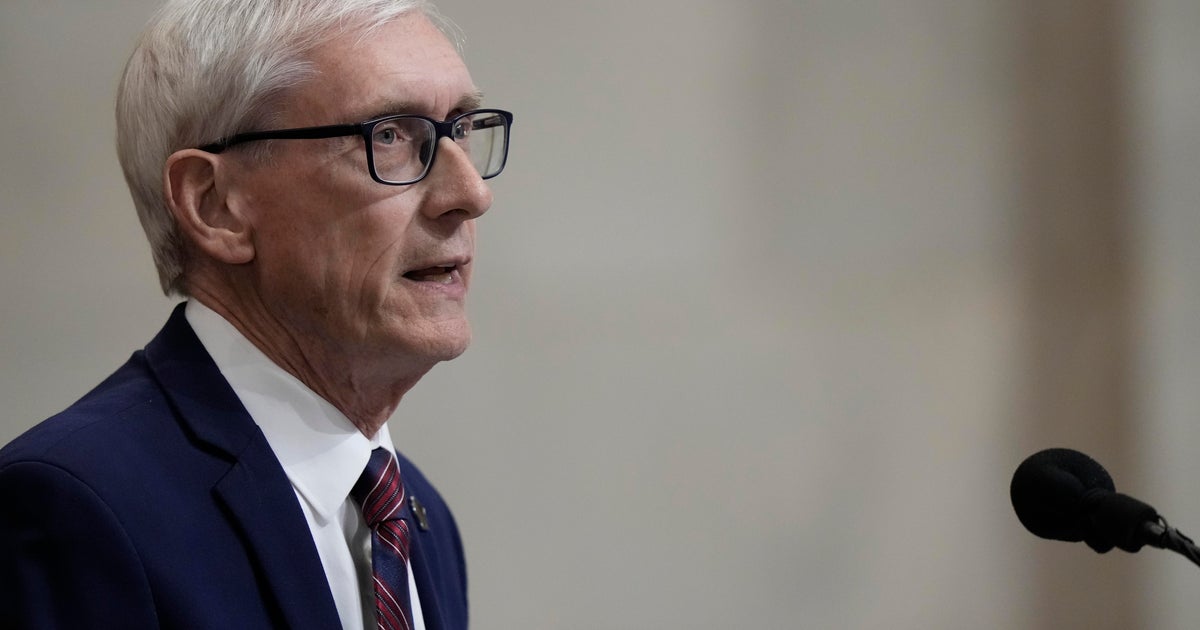Judge orders Texas to remove floating border barriers, granting Biden administration request
A federal judge in Austin on Wednesday ordered Texas to remove river barriers that the state assembled along a stretch of the U.S.-Mexico border to repel migrants, giving the Biden administration an early victory in its lawsuit against the buoys approved by Republican Gov. Greg Abbott.
Senior U.S. District Court Judge David Ezra issued a preliminary injunction directing Texas officials to remove the floating border barriers from the middle of the Rio Grande by Sept. 15, at the state's own expense. He also prohibited the state from setting up similar structures in the middle of the Rio Grande, the international boundary between the U.S. and Mexico in Texas.
In his opinion, Ezra found that Texas' buoys obstructed free navigation in the Rio Grande, in violation of a longstanding law governing waterways controlled by the federal government. Texas, he concluded, needed to obtain permission from the U.S. Army Corps of Engineers, a federal agency, to place the barriers in the river.
Ezra noted he was directing Texas state officials to remove the floating barriers from the middle of the Rio Grande by moving them to the riverbank on the U.S. side, rather than ordering its "removal entirely from the river."
The Biden administration filed its lawsuit against the floating barriers in late July, arguing that Texas needed permission from the federal government to set up the buoys, and that the state had failed to acquire it. The administration also said the structures impeded Border Patrol agents from patrolling the border, endangered migrants and hurt U.S.-Mexico relations.
Ezra agreed with the administration's arguments. "To the extent that further findings are required, the Court also finds that Texas's conduct irreparably harms the public safety, navigation, and the operations of federal agency officials in and around the Rio Grande," he wrote in his ruling.
In a statement, Abbott's office said Texas would appeal the ruling. "Today's court decision merely prolongs President Biden's willful refusal to acknowledge that Texas is rightfully stepping up to do the job that he should have been doing all along. This ruling is incorrect and will be overturned on appeal," the office said.
Associate Attorney General Vanita Gupta said the Justice Department was "pleased that the court ruled that the barrier was unlawful and irreparably harms diplomatic relations, public safety, navigation, and the operations of federal agency officials in and around the Rio Grande."
Last month, Texas repositioned the buoys closer to American soil after federal officials disclosed a joint U.S.-Mexico survey that concluded that roughly 80% of the barriers had been set up in Mexican territory. Mexico's government has vocally denounced the buoys, saying they violate the country's sovereignty.
While Abbott and other Texas officials have said the river barriers are designed to discourage migrants from attempting to enter the U.S. unlawfully and unsafely, human rights activists, Democratic lawmakers and a Texas state medic have raised concerns about the structures forcing migrants to swim across deepers parts of the Rio Grande where the risk of drowning is greater.
The legal fight over the buoys has become the latest flash point in a two-year political feud between the Biden administration and Abbott, who has accused the federal government of not doing enough to deter migrants from crossing the southern border illegally.
As part of a state border initiative, dubbed Operation Lone Star, Abbott has directed National Guard units to impede the entry of migrants through the use of razor wire. The state's Department of Public Safety, for its part, has been instructed to arrest and jail migrant adults on state trespassing charges.
The most high-profile component of Abbott's operation has been an effort to bus thousands of migrants from the southern border to large Democratic-led cities like New York, Chicago and Denver, which now find themselves struggling to house destitute newcomers who lack ties to the U.S.





